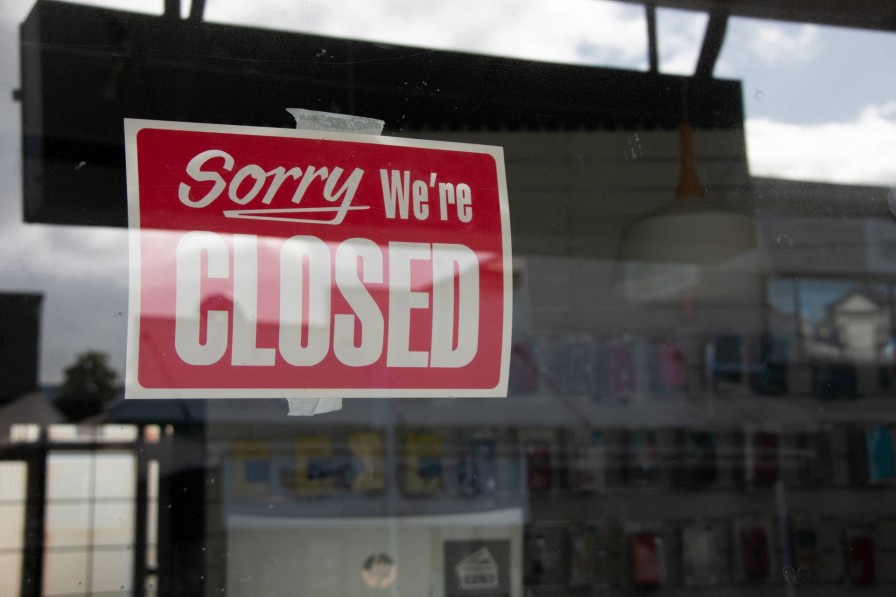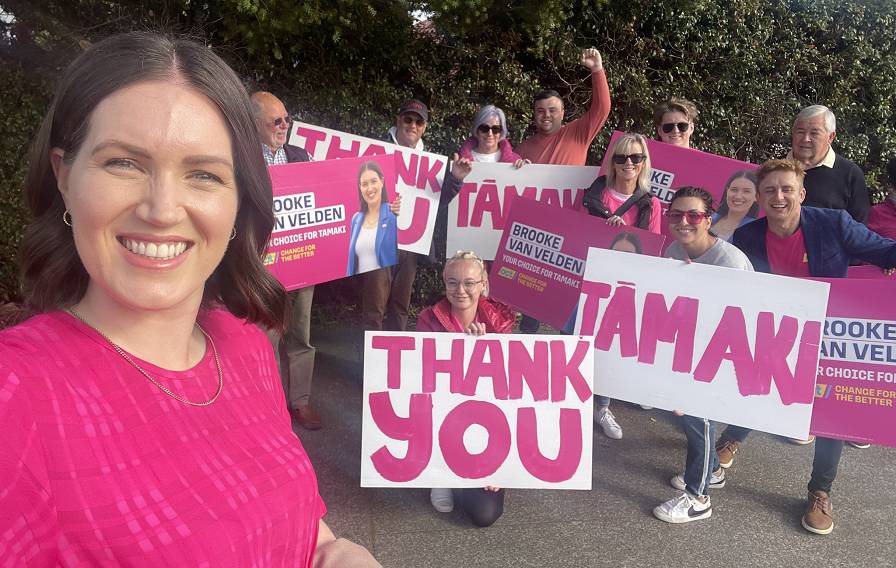Coalition tactics, Green ‘victory’, Labour’s future
ANALYSIS: The Greens scored their second-best result ever but are now out of government.
WATCH: NBR political editor Brent Edwards speaks with Grant Walker.
ANALYSIS: The Greens scored their second-best result ever but are now out of government.
WATCH: NBR political editor Brent Edwards speaks with Grant Walker.
Plenty of policies are on the chopping board once a new National-led government is sworn in.
Just when that might happen is not yet clear. At the very least, National and its likely partners Act and possibly New Zealand First will have to wait until November 3 to find out the final election result. If the counting of more than half a million special votes follows the trend of previous elections, the National-Act bloc is likely to lose one, maybe two, seats. That will make it dependent on New Zealand First to form a government.
But, if it does not and ends up with a single-seat majority, it might want to wait for the November 25 by-election in Port Waikato, which National would expect its MP Andrew Bayly to hold on to easily, before finally confirming the make-up of the new Government.
More likely than not, though, National will want to get on and quickly form a government so it can begin its ‘100 days of action’. Changes it proposes to make include removing the Auckland regional fuel tax, restoring 90-day employment trial periods for all businesses, repealing the Three Waters legislation, repealing Labour’s resource management reform legislation, getting tough on gangs, cracking down on serious youth offending, and extending free breast cancer screening to women up to the age of 74.
It is likely, no matter whether New Zealand First is involved or not, that it could make progress on those policy priorities. But, further down the track, there would be complications, for instance if it proceeded with plans to lift the age of eligibility for New Zealand Superannuation.

Act leader David Seymour will definitely be part of the next government, but will NZ First’s Winston Peters?
Much of the rest of its policy agenda would proceed more quickly were it just in coalition with Act. Act too might then be more confident it could push National to go further in reining in government spending and in slashing red tape.
All of that will only become clearer once National determines which party or parties it will form a government with and what compromises will be made to do so.
Meanwhile, the Labour Party is still recovering from the drubbing it got on Saturday night. Its only consolation is that it has had worse nights and recovered, albeit slowly. It might also be buoyed by the fact that National did even worse in the 2020 election and is now preparing to govern just three years later.
NBR presenter Grant Walker suggests Labour blew it. Possibly, but the criticism it faces comes from all directions, with some suggesting it should have campaigned on a wealth or capital gains tax and that it was punished for abandoning its traditional supporters, while others criticised it for undermining business too much by piling on regulations and costs.
In the end, a range of factors counted against it: frustration over ongoing Covid restrictions, particularly in Auckland; the cost-of-living crisis; general economic conditions; losing four ministers in a matter of months in election year; and the fact it was outspent many times over in the campaign by National and Act.
Ironically, the Greens scored the second-best result ever in recording a party vote of 10.78%. That compares with 11.06% in 2011 and 10.7% in 2014. In all three elections where the Greens scored well, Labour dropped into the 20s and the centre-left was unable to form a government.

Covid-19 restrictions appeared to be one factor in Labour losing support.
So, while Green Party candidates and supporters were jumping up and down in celebration on Saturday night, it soon became clear it was a Clayton’s victory.
Walker says, from watching the election night coverage, you would have thought the Greens had won the election. Instead, he was yelling at the television: “What don’t you get? You’ve lost all power; you’ve won nothing!”
One thing was different, though, from previous elections. Not only did Chlöe Swarbrick retain Auckland Central but Wellington city councillor Tamatha Paul won Wellington Central and longstanding Green Party list MP Julie Anne Genter won the neighbouring electorate of Rongotai. For the first time, the Greens have three electorate seats.
But, as Walker points out, they have no power and are about to see a range of policies they were instrumental in implementing, particularly on climate change, be dismantled by the new Government.
In another surprise result, National MP Simon O’Connor – who first won the seat in 2011 – has been turfed out of true-blue Tāmaki by Act’s deputy leader Brooke van Velden. It appears O’Connor’s social conservatism – or, as Walker says, “some pretty stupid postings and remarks in the past year” – counted against him when compared with van Velden’s more socially liberal approach.
It is a remarkable result, given National’s overall vote across the country lifted strongly from 2020 and that its party vote in the seat went up by 2000 votes and Act’s party vote fell marginally. It clearly ended up being a vote for the candidate.

Act Party deputy leader Brooke van Velden shocked National by defeating sitting MP Simon O’Connor in Tāmaki.
Meanwhile, at least one Labour MP has decided to leave politics following the election. Andrew Little, who unselfishly gave up the leadership in favour of Jacinda Ardern in 2017, was elected on the party list but was quick to announce his departure, saying he would not be the face of the next Labour Government and wanted to leave space for someone who would.
Walker asks when will the knives come out for Labour leader Chris Hipkins.
So far, most Labour MPs have expressed support for Hipkins to carry on as leader. They and Hipkins have at least a month or two to make up their minds. The caucus must endorse the leader within three months of the election by a 60% plus one vote or the leadership goes to a full vote among the party membership, union affiliates, and the caucus.
Will Labour follow its post-2008 period of leadership instability, caucus disunity, and general bad behaviour? Or will MPs pay heed to Little’s parting words about politics “being a team sport”?
Brent Edwards is NBR’s political editor.
Sign up to get the latest stories and insights delivered to your inbox – free, every day.